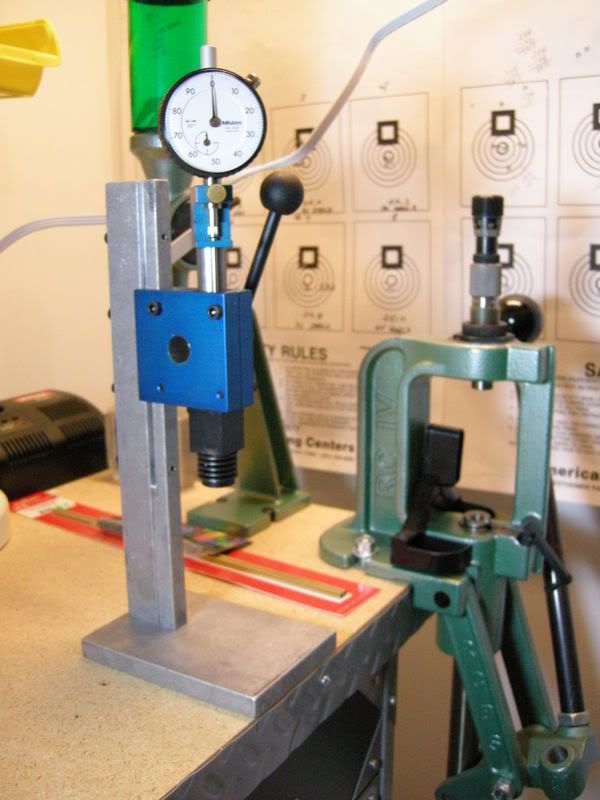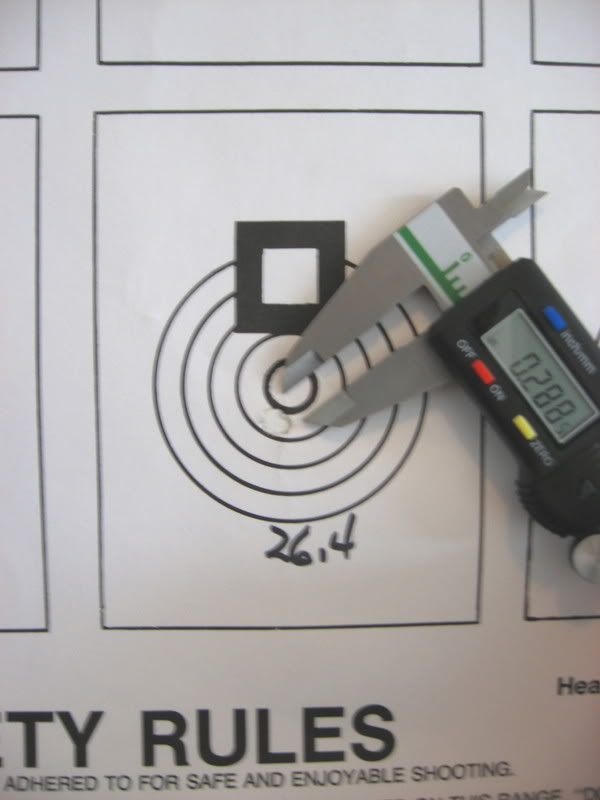Page 1 of 1
Seating dies?
Posted: Fri May 30, 2008 4:13 pm
by lakota
I am currently using a Lee collet die set. Is there any advantage to upgrading to something like a Forester Micrometer Benchrest Seating die? Will it load more accurate ammo? I am trying to wring the last bit of accuracy possible from my .204.
Re: Seating dies?
Posted: Fri May 30, 2008 7:10 pm
by acloco
Unfortunately, there is a multitude of factors that determine the output of accurate ammo.
I have seen ammo loaded with not much more than a scoop shovel (powder dipper) and a press that has obviously been dropped, rusted, kicked, and generally not taken care of....shoot bugeye groups.
Have also seen ammo loaded with the most expensive brass/primer/bullet/powder available, on the most expensive press/dies/trimmer/electronic scale there is.....and produce 3" groups at 100 yards.
If the caliber is new to me (meaning I don't own a set of dies for it....and cannot borrow a set from another reloading friend), then I buy a box of the cheapest factory ammo that I can find...that has good brass. Shoot that ammo while the dies are shipped to me.
Use a case checking device to check how the fired brass from your rifle is before proceeding. If your rifle's chamber/bolt/etc are not on the up and up....everything you do will be for not (except give you gray hair, lose your hair, or help your new ulcer along!!! ) .
Re: Seating dies?
Posted: Fri May 30, 2008 10:29 pm
by heikki02003
Hey acloco,
Could you please elaborate on what you mean by this sentence:
Use a case checking device to check how the fired brass from your rifle is before proceeding. If your rifle's chamber/bolt/etc are not on the up and up....everything you do will be for not (except give you gray hair, lose your hair, or help your new ulcer along!!! ) .
Which case checking device? Neck sorting tool...? Concentricity gage?
What can you tell from your fired brass that gives evidence of top quality properly fitted and assembled receiver and camber?
I agree with you that some primitive equipment can produce some pretty stunning groups. My neighbour reloads with ancient equipment, a scoop like you mentioned, he doesn't unify primer pockets or debur flash holes, nor does he sort brass by either weight or neck thickness, and shoot's clover leafs with many calibers.
Lakota,
Tools such as cartridge case gages, concentricity gages, and a Redding instant indicator can tell you A LOT about the quality of your handloads, and therefor the quality of your dies and press. If you want my opinion... (and I'm not familiar with your situation) I would inverst in the tools above ONLY IF YOU RELAOD FOR MANY CALIBERS. If you shoot more than lets say three or five different calibers and reload for them all, these tools will pay off in the end. If you only reload your .204, I'd drop the $180.00 for a set of .204 Redding Competition dies and be done with it. The case gage, concentricity gage, and the instant indicator are $18, $80, and $70 respectively.
Re: Seating dies?
Posted: Sat May 31, 2008 6:19 pm
by acloco
heikki02003 wrote:Hey acloco,
Could you please elaborate on what you mean by this sentence:
Use a case checking device to check how the fired brass from your rifle is before proceeding. If your rifle's chamber/bolt/etc are not on the up and up....everything you do will be for not (except give you gray hair, lose your hair, or help your new ulcer along!!! ) .
Which case checking device? Neck sorting tool...? Concentricity gage?
What can you tell from your fired brass that gives evidence of top quality properly fitted and assembled receiver and camber?
Pick your favorite concentricity gauge and go from there.
WHAT can you tell from your fired brass???? Are you serious? With your other advice, I thought you have been reloading for some time. Interesting.....
Re: Seating dies?
Posted: Wed Jun 04, 2008 11:55 am
by lakota
I just got my Redding Competition seater die in the mail. Very nice! I can see right off that the tolerances are very tight. Cant wait to try it. I think my next purchase will be a Redding Type S Neck Sizer. I couldnt afford to go all in at once for a whole set, so I am going to buy it in pieces so my wife cant see the bill for one set.

Re: Seating dies?
Posted: Thu Jun 05, 2008 2:59 am
by skipper
There's a really good article on the 6mmbr.com website about loading accurate ammo. You should read it if you haven't already.
http://www.6mmbr.com/jgcaseprep.html
Controlling run out is essential to wringing out all the accuracy you can with your 204. Redding Competition Seating dies are some of the best for controlling bullet run out.
I use a concentricity gauge to check every step of my process. If you end up with run out you can't just say it was the seating die. You have to find out where it is being introduced and then you can correct it. You could be causing run out between the case body and neck as early as when you decap. It could be happening when you neck size. You just have to find out when it's happening and fix the problem. You could even have a rifle chamber that isn't concentric. When in doubt, take a measurement.
If you want the ultimate in seating precision. Get a Wilson seating die and arbor press.


Five Shots @ 100 Yards
35 gr. Berger, Norma Case, Benchmark Powder, CCI BR-4 Primers
Custom Stolle Panda action, Lilja 3 Groove barrel, Jewell 1 oz. Trigger



